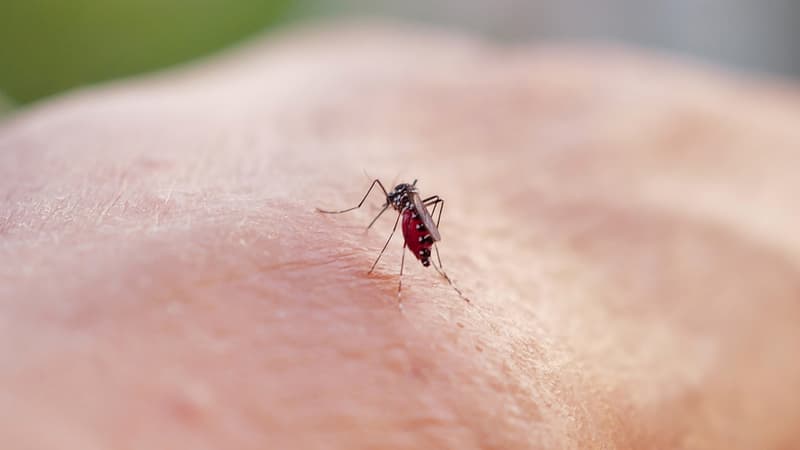Taking advantage of the softness and humidity, the tiger mosquito is increasingly present in France and its presence in much of the territory is worrying two months before the start of the Paris Olympic Games. IAedes albopictuscapable of transmitting dengue, but also Zika and chikungunya, is currently active or established in 74 departments of the metropolis, or around 80% of the territory, according to figures from the Ministry of Health.
According to the map produced by the Vigilance-Moustiques website, twelve departments, seven of them in mainland France, are now on purple alert, the maximum level of surveillance. These are Val-de-Marne, Drôme, Alpes-Maritimes, Bouches-du-Rhône, Gard, Hérault, Pyrénées-Orientales, Mayotte, Réunion, Guyana, Martinique and Guadeloupe.
Vigilance-Moustiques especially fears the holding of the Olympic Games in Paris starting on July 26, an event that could favor the mixing of populations and the importation of diseases such as dengue by people from tropical countries.
“All the elements come together to experience a record year for dengue in France in 2024,” summarizes the Parisian Yannick Simonin, university professor of virology at the University of Montpellier.
More than 200 cases of dengue registered since the beginning of May
According to Public Health France data covering the first four months of the year, more than 2,100 imported cases of dengue were recorded in mainland France, 82% of which were contracted in Martinique or Guadeloupe.
“In the last five years, the average number of imported dengue cases notified through mandatory declaration was 128 between January 1 and April 30,” says Santé Publique France.
In addition, from May 1 to 21, more than 200 imported cases of dengue were recorded.
For Antoine Cohen, mosquito control expert interviewed by BFMTV, the key to protecting againstAedes albopictus in “areas where the public will attend certain events” is prevention, surveillance and application of protection measures.
To limit the proliferation of the tiger mosquito, Santé Publique France emphasizes that it is first necessary to prevent the larvae from developing in stagnant water “such as under flowerpots, waste, gutters, etc.” To avoid being bitten by the insect, it is also advisable to wear long, loose clothing, use repellents or install mosquito nets.
Source: BFM TV


